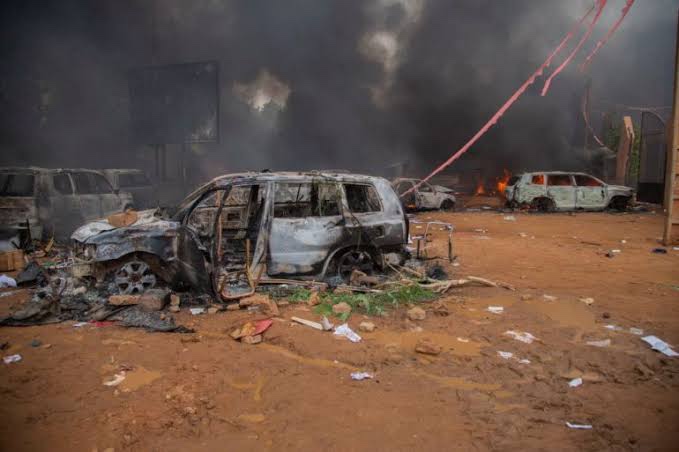Power impasse continues in Niger, 48 Hours after cup against President Bazoum

Two days after a coup led by members of the presidential guard have removed Niger’s democratically elected President Mohammed Bazoum, the country remains in a state of uncertainty regarding its leadership and ongoing mediation efforts. As of Friday, no official leader has been announced by the soldiers who orchestrated the coup, and President Bazoum, who was elected in a historic peaceful transition in March 2021, has not resigned.
In an attempt to justify their actions, the coup leaders released a statement on Thursday, signed by army chief Abdou Sidikou Issa, expressing their support for the coup as a means to avoid a violent confrontation that could lead to a bloodbath. However, tensions persist across the nation between coup supporters and those loyal to President Bazoum.
In the capital city, Niamey, known as an opposition stronghold, hundreds of people gathered on Thursday to express support for the Russian military group Wagner while brandishing Russian flags. The situation escalated as they proceeded to burn cars and ransack the headquarters of the president’s political party. The protesters voiced their frustration with the situation and indicated a shift in allegiance from the French to Russia.
President Bazoum, though detained, defiantly asserted on Thursday that democracy would prevail in Niger in a statement posted on the social media platform “X,” formerly known as Twitter. The Foreign Minister, Hassoumi Massoudou, also spoke on France 24, urging Nigeriens to resist the mutiny.
Despite initial attempts at mediation, there have been no further communications from the government, the mutinous soldiers, or updates on mediation discussions. Earlier in the week, the Economic Community of West African States (ECOWAS) had announced sending Benin President Patrice Talon to lead mediation efforts, but as of Friday, Talon had not arrived in the country. The coup leaders had warned “external partners” against interfering in their actions.
France, a significant ally of Niger, condemned the coup and called for President Bazoum’s release. French President Emmanuel Macron had held several conversations with Bazoum, and France supported the possibility of imposing sanctions against the coup leaders through regional organizations.
The coup has potential ramifications beyond Niger’s borders. Analysts speculate that it may destabilize the country and alter the international community’s engagement with the Sahel region. Niger’s strategic position had previously made it a crucial partner for Western nations in combating armed groups in the region, where anti-French sentiment has been rising.
The uncertainty surrounding Niger’s leadership and security situation could worsen the ongoing conflict against jihadist groups. Neighboring Mali and Burkina Faso have already removed French military aid, leading to concerns that Niger could face similar consequences, potentially losing millions of dollars in military aid and assistance.
As the country grapples with the aftermath of the coup, the most vulnerable civilians, including women and children, may suffer the most. Rights groups, including the International Federation for Human Rights, have warned that civilians are often the primary victims during coups. The United Nations Office for the Coordination of Humanitarian Affairs has paused its operations in Niger, affecting over 370,000 internally displaced people and more than four million who rely on aid. The situation remains fluid, and the international community closely watches developments in Niger.












